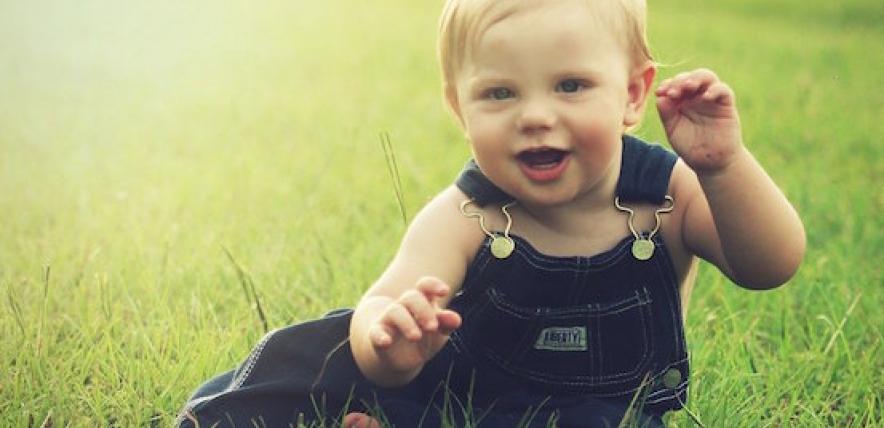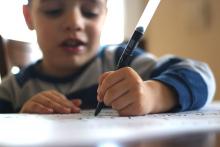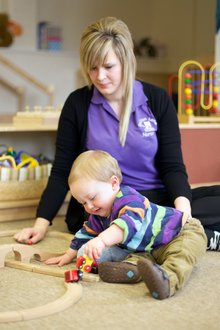This is a sponsored post by Y'earn
When you become a parent, you realise that babies require a lot of stuff!
Not only do they outgrow everything super quickly, but they also need a huge quantity of items like nappies, wet wipes, bottles, and formula (if you use it) on a day-to-day basis.
All of this adds up rather quickly and contributes to a huge amount of landfill waste.
We wouldn’t necessarily think it, but most of the products that we need are predominantly comprised of plastic.
Plastic pollution is so bad that now, one rubbish truck of plastic enters our oceans every minute (that’s 12.7 million tonnes per year!).
The number of baby items we use that go to landfill may shock you, so brace yourself...
Wipes
A 0–3-month-old baby will use 15 packets of wipes per month (1,110 wipes), which decreases to about 6 packs per month (420 wipes) when the baby is 6-9 months old. That’s a lot of wipes!
In 2020, the volunteers at the Great British Beach clean found an average of 18 wet wipes per 100m of coastline, which made them the third most littered item of 2020.
The worst part is that 90% of wet wipes in the UK contain plastic (predominantly polyethylene terephthalate, commonly known as PET, and/or polypropylene), and because plastic does not biodegrade but instead breaks down into microplastics, a horrendous number of microplastics and toxins are being released into our oceans and general environment every day.
Those figures are for wet wipes alone, but when we turn our attention to nappies, the statistics worsen.
Nappies
It has been estimated that 8 million nappies are thrown away every single day in the UK (3 billion per year), as one baby will use between 8-12 nappies per day! Not only is that a lot of waste, but it’s also hefty on the wallet, costing one person over £1,875 over 2.5-years! A nappy typically takes around 500 years to break down (they don’t biodegrade), and when they do eventually break down, they turn into microplastics, which invade our oceans and cause a huge amount of damage to marine life.
We are what we throw out
It doesn’t stop there, though, as microplastics also find their way into our food chains and end up entering our bodies predominantly through what we eat and drink.
To put this into perspective, during a person’s lifetime, they will ingest 20kg of plastic – which is the same weight as two wheelie bins! The toxic chemicals that leach out of plastics threaten the health of not only us but all living creatures on this planet.
What's the sustainable solution?
There is always a moral dilemma as a parent, as it can be difficult to get the balance right of taking care of your baby in a way that works for you and trying to be more eco-friendly.
We know we need to make changes, but sometimes we’re short of time and money – and we also need options to be able to implement them.
Luckily, in today’s world, there are more options available than ever before, as many people are on a mission to live a more sustainable lifestyle.
Reusable baby wipes - The idea behind these is that you wet the wipes, use them as normal and then clean them in the washing machine. It’s as simple as that! In the short and long run you’ll be saving money on all the wet wipes you’re not using, and you won’t be contributing to the sewer blockages caused by wet wipes (90% of UK sewer blockages are caused by wet wipes).
Cloth nappies or biodegradable disposable nappies - Cloth nappies come in a range of materials, such as bamboo, hemp, cotton and more, and it has been said that these materials are less likely to cause nappy rash than disposable nappies! You use them, wash them and use another one in the process of the others being washed. If you were to make the switch, you’d spend an overall of £200 on cloth nappies, which is cheap in comparison to the £1000 (if not more) that would be spent on disposable nappies.
If you’re not keen on cloth nappies, you can buy biodegradable disposable nappies. These are made from predominantly natural materials, although they are not 100% biodegradable, making them a less eco-friendly alternative than cloth nappies. However, they’re better than standard disposable nappies, so if you’re too time restrained to wash and care for the cloth nappies, these might be a good option to consider.
Reduce what you buy - Ultimately the best way to avoid filling up landfill is to buy less stuff in the first place. Ask family and friends if they can donate any unwanted items to you. But if you don't have anyone to ask then take a look at Y'earn - a parent-to-parent marketplace to rent baby and children's items from people and small businesses in your local community. There's also an opportunity to make some cash if you have children's items you want to get rid of.
Y'earn
The idea is simple – children need lots of things, and many of those things end up in landfill, so why not rent items instead of buying them? You’ll be saving yourself money from spending and time from researching, all while protecting mother nature.
Or, if you have items that you don’t need now, you can put them up for rent and help a family in your area to save money on buying items, and you’ll be earning money in the process.
If you need items, you can simply rent them for as long as you need to!
Y’earn handles the pick-ups and drop-offs and makes sure everything is sterilised before it reaches you.
The catch? There isn’t one – so you can feel great about saving/making money while you help to save the planet from more waste! It doesn’t even stop there, as Y’earn makes it easier to give back to some remarkable charities and they even plant a tree for every rental.
Whether you’re looking to switch to eco-friendly product alternatives or cut down on your consumption – there’s always a way to reduce the amount of plastic in your home.
With one small step at a time, we can all contribute to change and make this world a better place - together.
Learn more about y'earn









